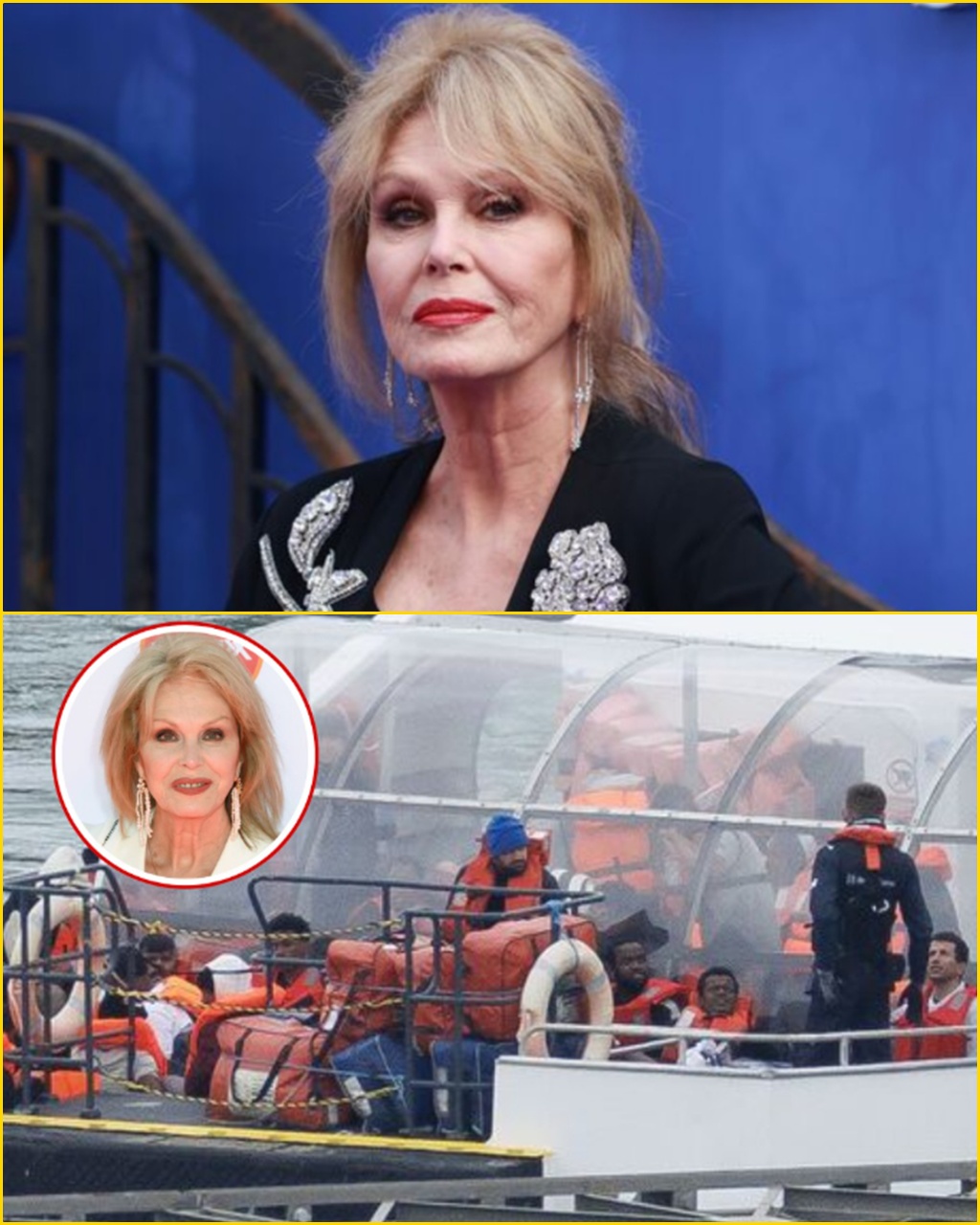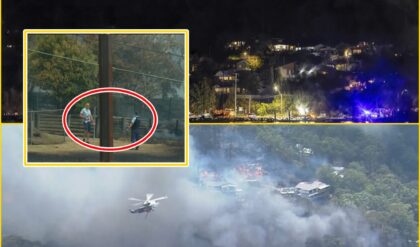Dame Joanna Lumley, one of Britain’s most beloved actresses and humanitarians, has found herself at the centre of a growing political storm after making controversial remarks about migration during an appearance at the Cheltenham Literature Festival.
Speaking candidly about what she described as a “global crisis,” the 79-year-old Absolutely Fabulous star said that while compassion was essential, Britain had to face reality.

“Of course, a tiny country can’t support millions and millions of people,” Lumley said.
She went on to explain that most migrants would rather remain in their homelands, but are often forced to leave because of war, insecurity, or because their land “can no longer yield enough food.”
Her comments came as the UK continues to grapple with record numbers of small-boat crossings in the English Channel. Since the Labour government took office last year, more than 57,000 people have reportedly arrived on UK shores, with a single dinghy carrying 125 migrants intercepted just last month — the largest number ever recorded in one boat.
A Divided Reaction
Lumley’s remarks quickly ignited debate across social media and political circles.
Supporters argued that she was simply stating an uncomfortable truth — that the UK, with its limited space and resources, cannot indefinitely accommodate large-scale migration without significant infrastructure strain.
Others, however, accused her of echoing anti-immigration rhetoric and overlooking the human suffering behind the statistics.
One critic wrote on X (formerly Twitter): “It’s disappointing to hear someone who has done so much humanitarian work speak in a way that risks fuelling hostility towards migrants.”
Human rights groups stressed that language matters, particularly when it comes from public figures as respected as Lumley. “Words like these can easily be misinterpreted,” one campaigner warned. “Migration is not a choice for most people — it’s a matter of survival.”
Clarifying the Message
Those close to Lumley insist her comments were not meant to diminish the plight of migrants but to encourage deeper global solutions. Throughout her decades of activism, Lumley has consistently supported humanitarian causes, from refugee rights to environmental protection.
At Cheltenham, she called for a “new approach” to the migration crisis — one that focuses on long-term stability and sustainability rather than border fences or political point-scoring.
“We must think beyond the immediate,” she said. “If people are fleeing, we must ask why — and help fix what is broken in those countries.”
She argued that nations should invest more heavily in food security, education, and peacebuilding to address the root causes of displacement. “The answer,” Lumley added, “is not simply to open doors or close them, but to create a world where people don’t have to leave home in the first place.”
A Voice That Still Resonates
Despite the backlash, many have praised Lumley’s courage to speak openly about one of the most polarising issues in modern Britain. Her ability to blend compassion with pragmatism has long defined her public image — from campaigning for Gurkha veterans’ rights to advocating environmental reform.
Whether one agrees with her or not, Lumley’s intervention has reignited a much-needed conversation about the balance between generosity and sustainability in a world struggling with migration, war, and climate change.
As one commentator put it: “You don’t have to agree with Dame Joanna to admit she’s right about one thing — pretending there isn’t a crisis helps no one.”


